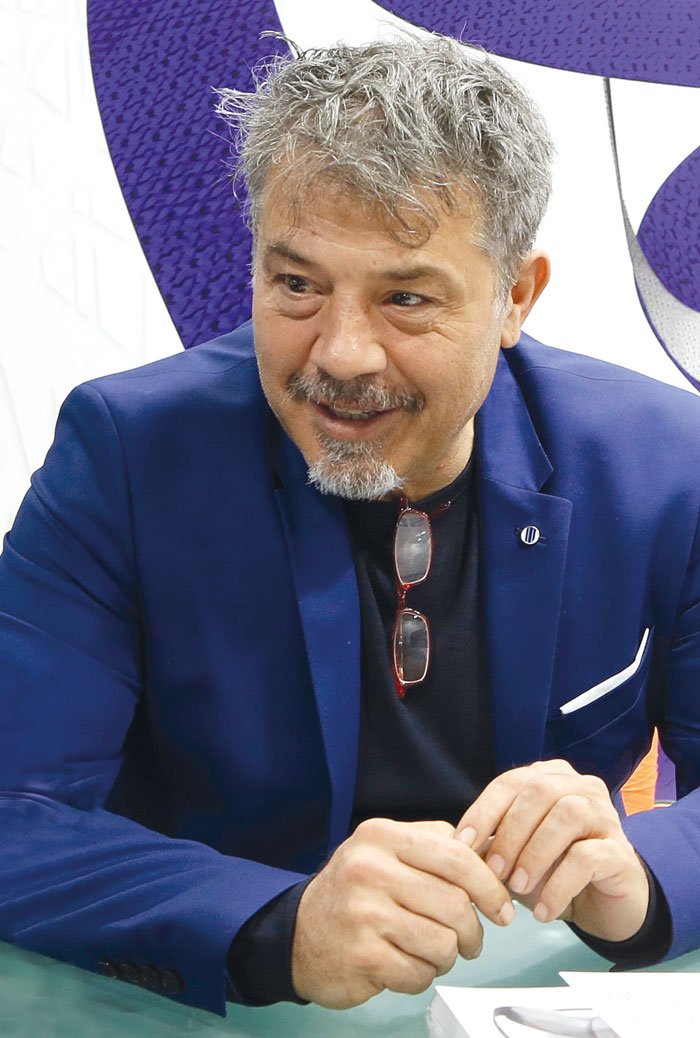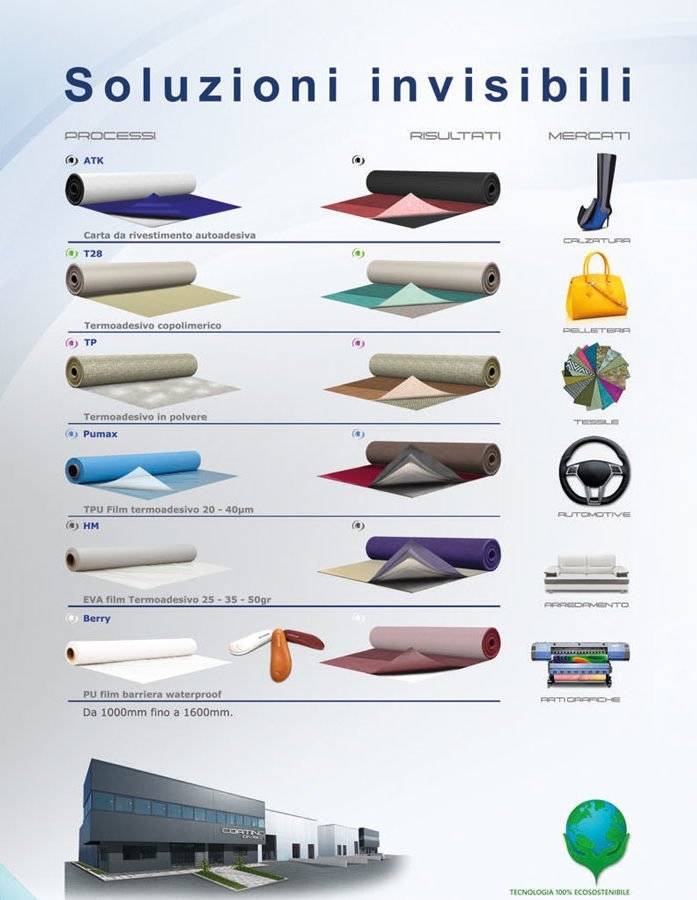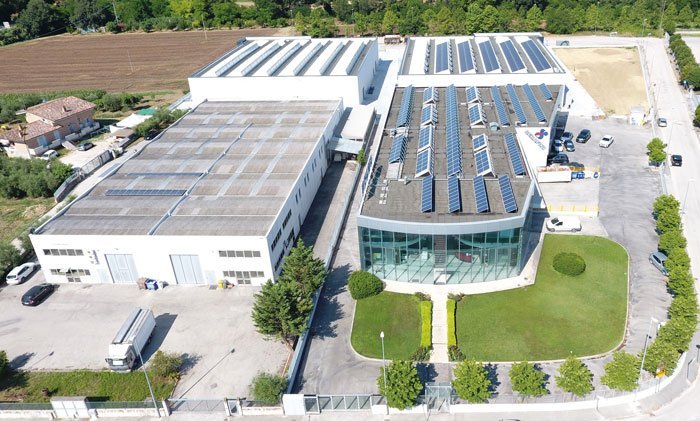
The Serafini Group, based in Civitanova Marche, is today a leader in the distribution of materials for footwear, leather goods and leather clothing in over fifty countries worldwide. Adhesive reinforcing tapes, ant-tapes, interlinings, synthetic linings, non-woven fabrics and microfibres make up the rich company catalog, studied season after season with meticulous care and a thorough eye on the environmental issues.Boasting eight partner companies and three production sites in Italy, Mexico and Portugal, the company has established itself in the sector thanks to the great motivation, hard work, experience and professionalism of its team, led by Marco Serafini; we asked him what’s new in store for the coming months.

Marco Serafini
Marco Serafini, at the last edition of Lineapelle, among the many innovations you showcased, a new finishing process for leather goods was launched: the WaxCoat. How is its marketing going? The feedback with the public was very positive, thanks to the many benefits that come from the use of this product: acting as a barrier primer, WaxCoat allows to use a smaller amount of adhesive while ensuring the same yield, it reduces the hydrophilicity rate of the microfibre, namely, the absorbing capacity during the gluing phase, thus safeguarding its softness. It also helps to maintain the dimensionality of the shape, thus avoiding any stretching or shrinking effect. That’s a significant issue especially for the leatherware industry, that requires very low dimensional tolerances: this was probably one of the reason for WaxCoat’s success, whose resin is an exclusive Serafini patent.
Are there any other innovations coming up for the leather industry? We are developing new hotmelt thermo-glue lines and a series of fabrics coupled with ‘faux microfiber’; our laboratory constantly studies cutting-edge and green solutions to offer ever more functional and innovative technologies.

What do you offer for the footwear sector? Among our flagships, stands out the Microline series, a special sustainable lining made with recycled polyester and polyurethane. Thanks to cutting-edge production facilities, this lining can also be self-adhesive, thermo-adhesive, coupled with waterproof membrane or foam. Microline is the ideal solution for footwear because it guarantees hygiene and comfort to the foot: the lining boasts a soft, full and pleasant texture, thanks to the perfect union between the support, made of recycled textile microfiber, and polyurethane, which ensure 100% breathability, excellent absorbency features and a totally ecological approach. Its high technical features given by extraordinary water vapor permeability makes Microline stand our among its competitors: it is a unique product, which we like to define “the technology that equals nature”. As a matter of fact, thanks to the new processing techniques and to the types of resins used for the production, the Microline lining is the right answer to the growing vegan needs, being the substitute for animal leather par excellence and complying with all REACH regulations; after the success achieved by the pig-like leather, we are developing the goat and calf effect, a real step towards the future.
Is the application of the mixtures you produce carried out directly inside the company’s facilities? Synthetic coating is carried out by a partner company, while for all reinforcement materials we rely on a laboratory that studies and designs formulas. We produce the compounds and then test them directly at shoe factories or leather goods companies that work for established brands; in this way we are able to offer truly innovative and effective solutions as every product is developed together with those who work within the supply chain and know the many needs of the market.

An overview of Serafini Srl. The photovoltaic panels installed on the plant’s roof ensure the company almost complete energy autonomy: a further step towards a circular and sustainable economy.
The Civitanova Marche site is equipped with modern and ecosustainable technologies. Do you also have indoor coating machines? Yes, we use the new hotmelt extrusion technique, which reduces time, costs and waste: basically, we apply the dry product, without the use of resins or drying ovens, thus avoiding to disperse vapors in the environment and significantly reducing the consumption usually derived from obsolete gas models. Our machines work on electricity, which we are proud to produce by ourselves thanks to the solar panels installed on the roofs of our buildings: this system allows us to obtain about 270KW of power per day, making the whole structure almost totally electrically independent.
You are constantly working on the recovery of production waste from other sectors. What are the new features? We started with regenerated cotton, recovered from old clothes: once minced, carded, spun and re-woven, we get a good fiber, perfect for our line of ecological reinforcements, which is already established on the market. From this idea came a new venture: the use of alternative fibers derived from non-GMO and intensive cultivation waste such as hemp, bamboo or agave. The latter, for example, is a medicinal plant used, among other things, for the distillation of tequila. Based on the concept of the re-use and re-enter into the production cycle the recovered raw materials, we process the liquor production waste to produce Agavina, a non-woven fabric completely obtained from the organic fibers of the agave. Our goal is to replace the polyester fibers with those obtained from organic waste. Recently we have also started to develop an ecological system to give new life to the waste of daily-use plastic, through the development of yarns derived from the PET chain. These are special fabrics, featuring EcoTex certifications, made of recycled polyester; our respect for the environment and experimentation of new recovery processes lie at Serafini’s corporate policy, aimed at sustainability and at the growth of circular economy. www.serafini.it
